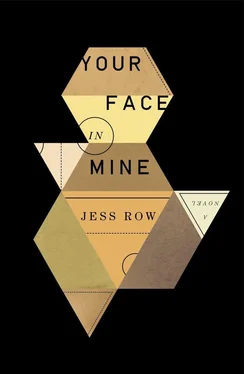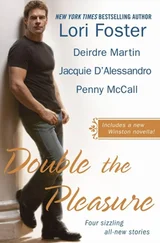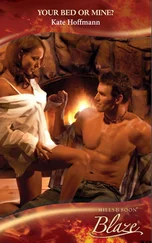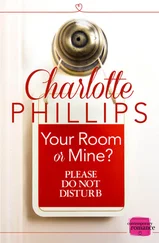But it worked: after that I shut up. Stopped talking in class altogether. No one said anything about it; I think they were relieved. Took me almost an entire year, most of third grade, and then, when I opened my mouth again, I was white. Dad was right. I hardly remembered being at Shabazz. To spare myself from having to explain it, I used to tell people I’d been at RP since kindergarten, and hardly anyone ever questioned me about it. I mean, I was happy, wasn’t I? You know what it’s like there: it’s a good school. A little island of happiness with a well-fortified PTA. Those jungle gyms get repainted every year, and that library has story time in three different languages. They don’t sell off the new textbooks and use the old ones at RP. I’d send my kids there in a heartbeat. Those were the happiest years of my life, you could say, once I settled in. So to speak. Third grade up until middle school. Well, it’s a latency period, isn’t it? In more ways than one. Transsexuals, you know, they say the same thing. Prepubescent children are allowed to be androgynous, to a degree. They can play at cross-dressing, they can engage in all kinds of imaginative fooling around. Or, in some cases, they can just be nothing. Ungendered. Sexless, curveless, living only in their heads. That must have been me. Once I knew I was white — once I was told, once I was reminded — I just sort of relaxed into being nothing at all. I spent no time outside in the neighborhood. None at all. If I played outside of school, it was at friends’ houses. Or on Roland Avenue. For a few years I spent every afternoon till five at the Roland Park Library, across the street from school. Dad picked me up there. And then when I was a little older I started taking the bus down to Hopkins to meet him on campus. It was a pretty genteel existence, comparatively speaking. Roland Park blots out the rest of the world pretty damn well.
And then I went to Willow. There was no option, really, at that point. Dad wanted me to go to Northern Middle, but the guidance counselor at Roland Park had some kind of private meeting with him and convinced him that he didn’t want a dead son. What was allowable, what might slip under the radar, at Shabazz, was not to be tolerated after grammar school. Thus our apartheid system proceeds. So I was set up with the SSAT, and went on interviews, all kinds of aptitude tests, and Willow was the one that wanted me.
I’ll never forget the first time Dad took me out there. It was in April, early April, just this time of the year. Trees bare, chilly, rainy. We came up the driveway, past the horse barn, past the pasture, the lacrosse field, the other lacrosse field, you know, rounded the top of the hill, saw the lake, the theater, and the trees all around, trees that seemed unending in every direction. I mean, talk about a brand. Talk about impact. The Willow School. As in, you are going to school in the enchanted forest. And that was before I even saw the swans. Who goes to a school with swans? People call it a country club, it’s not a country club. It’s a sacred grove. How can you not feel special? How can you not feel, like, elected to be there?
Up to that point, believe me, I had worked hard, so hard, at being average. I followed football, baseball, and basketball. It drove Dad crazy. I listened to Z100. Whatever the big movie was, I wanted to go. After Top Gun I had the little bomber jacket and the aviator glasses. Frankly, I would have been happiest in the suburbs. I had a friend, Carl, whose dad lived out in Owings Mills; I had a sleepover there once. Typical ranch house, basketball hoop in the driveway. We played in the sprinklers and went to Chuck E. Cheese’s for dinner. I thought that was paradise.
So you can see: Willow was a shock. Whatever it was, it wasn’t normal. Look down the hall: you’ve got the pimply eighth-graders hunched over their Magic cards, you’ve got Sheila Puchner practicing her Ophelia monologue, Dr. Kendricks arguing with Jason Kornbluth about the Second Law of Thermodynamics. You’ve got kids learning to play “Epistrophy” on the xylophone and kids sneaking out into the woods to smoke clove cigarettes. God, I hated it at first. I’d worked so hard not to be a freak, and here I practically had to be one.
Martin takes the topmost styrofoam box from a stack of three, opens it, and hands me a blue crab still in its death clench, brick-red, crusted with Old Bay. I’ve already spread the Sun across the picnic table, unpacked the cheap Chinese mallets and bamboo picks, the potato salad and tepid complimentary cans of RC Cola. What’s your strategy? he asks. Pick and accumulate? Or pick and eat?
Pick and eat.
Davis, he shouts over his shoulder, don’t think that just because I’m eating I’m not watching you. I’m watching .
We’re in Druid Hill Park this time, at the picnic tables on a rise overlooking the basketball courts. Half past noon, late April now, a muggy spring Saturday. On the far side of the park drive is the reservoir, and beyond that, the fringe of the downtown skyline. I imagine I can see the shot tower, that old Civil War relic, off to one side. Davis, Martin’s little brother — Big Brothers Big Sisters of Baltimore — is running wind sprints across the court, a long, thin shadow in gray track pants and a Golden State Warriors shirt. Every so often he stops and smears an arm across his eyes. He hardly seems winded.
He’s sixteen, Martin tells me, six-six, rear guard, great rebounder. Plays for City College High School. Doesn’t need to be coached, thank god, ’cause that’s not my thing. I’m here for the bigger issues. Life issues. Kid lives with his mom and three little ones. Older brother’s in federal prison in Richmond. Under the three-strikes system, interstate transport of narcotics, that’s twenty years. This one, though, he’s super-smart, 3.71 GPA, three AP classes. He’s going places. But he has to be watched. Mom’s supportive and all, but she’s got two jobs and a so-so boyfriend.
And what do you do, exactly?
Honestly? I bother him. That’s my job. He gets a call or text from me at least every other day. We have Wednesday-night dinners twice a month. I come to his practices. I’ve been to his parent-teacher meetings when Laronda can’t make it.
That sounds more like surrogate fatherhood.
No doubt. It bugs him, too. He’s embarrassed to be seen with me. So be it. Everyone his age should have a persistent dickhead like me tapping him on the shoulder. On his own, remember, Davis’s life expectancy is ten years. BBBS is double-teaming him, me and another guy for when I’m out of town. The program needs a big success. Harvard. Stanford. There’s matching funds at stake.
Teeth clamped around a finger of crab, working it doggedly from the claw, I’m trying to remember the first time I saw Martin in ninth grade. It must have been at school, but I have no memories of him at school; what I remember is the first time he appeared at band practice, in the early spring. Alan and I had been fooling around in his basement for a few weeks; we didn’t have a name yet, or a single finished song, but it was permanent enough that I’d stopped lugging my kit home every time. We hadn’t decided to formally audition bassists, but somehow Martin knew about us, and simply appeared, one Sunday, in stonewashed jeans, Converse high-tops, and a plain white T-shirt tucked in at the waist. His bass — painful as it is to remember — was an Ibanez, sky-blue, with a lightning-shaped head, and he wore it, as he always would, too high, at belt level.
Penny for your thoughts, Kelly.
I’m just thinking about what a dork you were when we met. Or, rather, what a dork I thought you were. A music nerd. You were really into jazz fusion. Weather Report, Jaco Pastorius, all that junk.
Читать дальше












